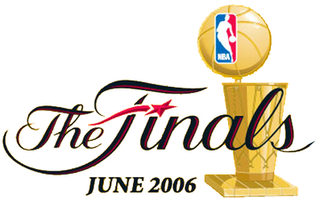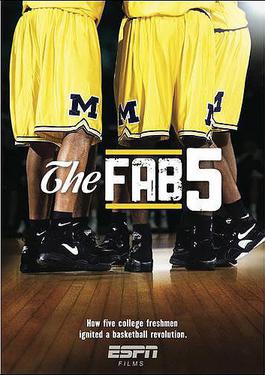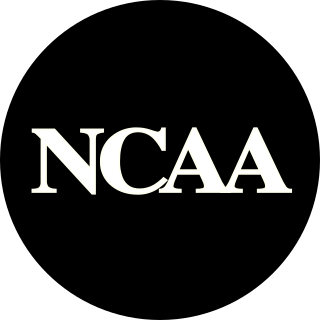
Patrick James Riley is an American professional basketball executive, former coach, and former player in the National Basketball Association (NBA). He has been the team president and minority owner of the Miami Heat since 1995, and he also served as the team's head coach from 1995 to 2003 and again from 2005 to 2008. Often referred to as "The Godfather", Riley is regarded as one of the greatest NBA figures of all time both as a coach and executive. He has won five NBA championships as a head coach, four with the Los Angeles Lakers during their Showtime era in the 1980s and one with the Heat in 2006. Riley is a nine-time NBA champion across his tenures as a player (1972), assistant coach (1980), head coach, and executive. Since the start of his NBA career through 2023, Riley appeared in 34 percent of all NBA Finals as a player, coach, or executive.

Alonzo Harding Mourning Jr. is an American former professional basketball player who has served as vice president of player programs and development for the Miami Heat since June 2009. Mourning played most of his 15-year National Basketball Association (NBA) career for the Heat.

Mayce Edward Christopher Webber III is an American former professional basketball player. Webber played 15 seasons in the National Basketball Association (NBA), with the largest portion of his career spent with the Sacramento Kings. Drafted number one overall in the 1993 NBA draft, Webber became a 5-time NBA All-Star, a 5-time All-NBA Team member, and the NBA Rookie of the Year. He also played for the Golden State Warriors, Washington Bullets, Philadelphia 76ers, and Detroit Pistons during his NBA career.

Juwan Antonio Howard is an American professional basketball coach and former player who is an assistant coach for the Brooklyn Nets of the National Basketball Association (NBA). He previously served as the head coach of the Michigan Wolverines men's team from 2019 to 2024 before joining the Nets in 2024.

Jalen Anthony Rose is an American sports analyst and former professional basketball player. In college, he was a member of the University of Michigan Wolverines' "Fab Five" that reached the 1992 and 1993 NCAA Men's Division I Basketball Championship games as both freshmen and sophomores.

Udonis Johneal Haslem is an American former professional basketball player who is currently the Vice President of Basketball Development for the Miami Heat, where he spent his entire 20-year career in the National Basketball Association (NBA). He is one of only three players in NBA history to play at least 20 years with one team. Haslem played college basketball for the Florida Gators, where he was a key member of four NCAA tournament teams. Haslem began his professional career in France with Chalon-sur-Saône and then signed with his hometown Miami Heat in 2003, becoming the longest-tenured player in franchise history. Haslem won three NBA championships with the Heat in 2006, 2012, and 2013.

Jimmy Hal King is an American former professional basketball player. King played in the NBA and other leagues. He is most famous for his time spent on the famed University of Michigan Wolverines Fab Five along with Ray Jackson, Juwan Howard, Chris Webber, and Jalen Rose, who reached the 1992 and 1993 NCAA Men's Division I Basketball Championship games as freshmen and sophomores. He played all four years at Michigan and averaged 15 points per game as a senior in 1995.

The 2006 NBA Finals was the championship series of the National Basketball Association's (NBA) 2005–06 season, and the conclusion of the season's playoffs. The Dallas Mavericks were favored to win the championship over the Miami Heat. Despite these odds, the Heat won the title in six games over the Mavericks, becoming the third team—after the 1969 Celtics, the 1977 Trail Blazers and later the 2016 Cleveland Cavaliers and 2021 Milwaukee Bucks—to win a championship after trailing 0–2 in the series. Dwyane Wade of the Heat was named Most Valuable Player of the series.

Ray Jackson is an American former professional basketball player. He is most well known for his time as a member of the Fab Five with the Michigan Wolverines.
Eric Riley is an American former professional basketball player who was selected by the Dallas Mavericks in the second round of the 1993 NBA draft. Riley played for the Mavericks, Houston Rockets, Los Angeles Clippers, Minnesota Timberwolves and Boston Celtics in five NBA seasons, averaging 3.1 points per game. He was an injured reserve member of the 1993–94 Houston Rockets who won the NBA championship.
Robert Todd Pelinka Jr. is an American basketball executive, lawyer, sports agent, and former college basketball player from Lake Bluff, Illinois in the North Shore of the Chicago metropolitan area. Pelinka is currently the vice president of basketball operations and general manager of the Los Angeles Lakers of the National Basketball Association (NBA).

The Michigan Wolverines men's basketball team is the intercollegiate men's basketball program representing the University of Michigan. The school competes in the Big Ten Conference in Division I of the National Collegiate Athletic Association (NCAA), and play their home games at Crisler Center in Ann Arbor, Michigan. The Wolverines have won one NCAA Championship, as well as two National Invitation Tournaments (NIT), 15 Big Ten Conference titles and two Big Ten tournament titles. In addition, Michigan won an NIT title and a Big Ten tournament that were vacated due to NCAA sanctions.

The 1991–92 Duke Blue Devils men's basketball team was a Division I college basketball team that competed in the Atlantic Coast Conference. Led by All-American Christian Laettner and Grant Hill, Duke won its 2nd national championship in as many years to become the first repeating team since UCLA's seven-year dynasty from 1967 to 1973. The feat would not be accomplished again in college basketball until the Florida Gators did it in 2007.

The 1991–92 Michigan Wolverines men's basketball team represented the University of Michigan in intercollegiate college basketball during the 1991–92 season. The team played its home games in the Crisler Arena in Ann Arbor, Michigan, and was a member of the Big Ten Conference.

The 2010–11 Michigan Wolverines men's basketball team represented the University of Michigan during the 2010–11 NCAA Division I men's basketball season. The team was coached by John Beilein. The team played its home games in Ann Arbor, Michigan at the Crisler Arena, which has a capacity of 13,751, for the forty-fourth consecutive year. This season marked the team's ninety-fourth consecutive year as a member of the Big Ten Conference. The team witnessed the departure of its four tallest players and two leading scorers from the prior season. The incoming class featured the sons of two former National Basketball Association players and the younger brother of a current one. Additionally Joe Dumars' son Jordan transferred to the team and Glenn Robinson's son, Glenn Robinson III verbally committed to the class of 2012. The season was marked by close losses against numerous highly ranked teams.

The 1993–94 Michigan Wolverines men's basketball team represented the University of Michigan in intercollegiate college basketball during the 1993–94 season. The team played its home games in the Crisler Arena in Ann Arbor, Michigan, and was a member of the Big Ten Conference. Under the direction of head coach Steve Fisher, the team finished second in the Big Ten Conference. The team earned an invitation to the 1994 NCAA Division I men's basketball tournament as a number three seed and advanced to the fourth round. The team was ranked for the entire eighteen weeks of Associated Press Top Twenty-Five Poll, starting the season ranked fifth, peaking at number three and ending ranked eleventh, and it also ended the season ranked eleventh in the final USA Today/CNN Poll. The team went 6–6 against ranked teams including the following victories: November 26, 1993, against #13 Georgia Tech 80–70 in the Tipoff Classic in Springfield, Massachusetts, January 29, 1994, against #16 Wisconsin 79–75 at home, February 1 against #8 Purdue 63–62 on the road, February 8 against #12 Indiana 91–67 at home, February 19 against #20 Minnesota 72–65 at home, and March 19 against #12 Texas in the 1994 NCAA Division I men's basketball tournament 84–79 at Kansas Coliseum.

Timothy Duane Hardaway Jr. is an American professional basketball player for the Detroit Pistons of the National Basketball Association (NBA). He played college basketball for the Michigan Wolverines and declared for the NBA draft after his junior season for the national runner-up 2012–13 team. Hardaway was selected as the 24th overall pick in the 2013 NBA draft by the New York Knicks. He has had two stints with the Knicks and has also played for the Atlanta Hawks and the Dallas Mavericks. He is the son of Hall of Famer Tim Hardaway.

The Fab Five is a 2011 ESPN Films documentary about the 1990s Michigan Wolverines men's basketball players known collectively as the Fab Five: Chris Webber, Jalen Rose, Juwan Howard, Jimmy King, and Ray Jackson. It chronicles the recruitment, glory years, notorious time-out fiasco, cultural impact and the scandal that followed these players who are described as iconic figures in the media. The film originally aired on March 13, 2011, on a national broadcast on ESPN. On its original airing, the film drew 2.7 million viewers, setting a record as the highest-rated ESPN documentary ever.

The Duke–Michigan men's basketball rivalry is a college basketball rivalry between the Duke Blue Devils men's basketball team of Duke University and Michigan Wolverines men's basketball team of the University of Michigan. The two teams played annual, regularly scheduled contests between 1963 and 1970 and between 1989 and 2002. They also scheduled meetings in 2007 and 2008 and had a 2013 ACC–Big Ten Challenge contest as the most recent meeting. In addition, the teams have had five unscheduled meetings in tournaments, three of which were in the NCAA Division I men's basketball tournament including the 1992 National Championship Game. Two of the five tournament meetings occurred in 2011.

The 1991–92 NCAA Division I men's basketball season began in November 1991 and ended with the Final Four at the Hubert H. Humphrey Metrodome in Minneapolis, Minnesota on April 6, 1992.


















